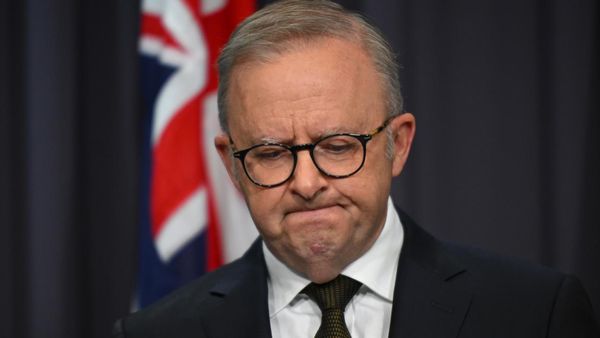You were paying too much for automobile insurance while your car sat parked in your driveway or garage while you worked from home because of the COVID-19 pandemic.
That’s the main takeaway, experts say, from a rare public look at how much of your premiums auto insurance companies in Illinois ended up keeping.
The rarely made-public insurance data, newly released by the Illinois Department of Insurance, show auto insurers in Illinois have pulled in the dough during the coronavirus pandemic.
And the money that boosted their bottom lines often far outpaced the “pandemic relief” refunds that insurers ballyhooed in the months after the virus prompted government-ordered shutdowns in March 2020 and widespread moves to working from home.
The state insurance regulators demanded in March that all automobile insurance companies doing business in Illinois give them data showing how much money they took in, paid out and kept for themselves. The aim was to get a sense of how far out of whack the premiums that consumers were paying during the pandemic really were.
It turns out that many Illinois insurers easily could have given bigger coronavirus refunds and still maintained their pre-pandemic profit levels from 2019.
The four biggest auto insurers in Illinois — State Farm, Allstate, Progressive and Geico — together took in about $280 million more in premiums in 2020 than they needed to maintain their 2019 profitability. That’s the case even after accounting for the $220 million in the insurers’ much-touted pandemic relief refunds to customers, according to an analysis of the new data by the Consumer Federation of America and the Illinois Public Interest Research Group, two nonprofit consumer advocacy organizations.
“It shows that they took an opportunity — a crisis — to make profits at our expense,” says Abe Scarr, state director for Illinois PIRG.

Douglas Heller, director of insurance for the Consumer Federation, which has been pushing auto insurers to provide more relief since early in the pandemic, says the numbers are “just utterly stark” in exposing automobile insurers’ big pandemic windfalls in Illinois.
According to the consumer groups’ analysis, Northbrook-based Allstate took in about $82.5 million more in premiums in Illinois than it needed to maintain its 2019 level of profit. That’s even after accounting for about $34 million it gave back in pandemic refunds.
After factoring in its pandemic refunds, Allstate used about 50 cents of every premium dollar to pay claims in Illinois in 2020, according to the groups’ analysis of Allstate’s loss-ratio data.
Allstate was quick to send out refunds after the pandemic hit.
But, Heller says, “They ended up being one of the stingiest.”

Asked about the figures, Allstate spokeswoman Tanya Robinson says: “We were the first insurer to respond to decreased driving in March 2020 by returning $1 billion to drivers countrywide and later reduced rates in Illinois when there were fewer drivers on the road. We continue to make sure our customers get great value and coverage for their money.”
Allstate’s reduced rates for drivers were short-lived, though. This spring, Allstate raised premiums for its Illinois customers by an average of about 12% — one of its steepest increases ever.
As the pandemic boosted Allstate’s bottom line, the company gave Thomas Wilson, its chief executive officer, a 7.7% raise in 2020, increasing his total compensation to $21.1 million.

The insurer also went on a buying spree, acquiring National General Holdings Corp. for $4 billion and Safe Auto for $300 million.
Representatives of State Farm, Progressive and Geico did not respond to requests for comment.
But two industry groups pushed back on the consumer groups’ criticisms, saying insurers “took appropriate steps immediately” to make refunds in 2020. But they say the number of total miles driven soon rebounded, and dangerous trends emerged, like more speeding and fewer people wearing seatbelts.
They point to the National Highway Traffic Safety Administration’s traffic crash data, which showed 38,824 people were killed nationwide in crashes in 2020, the highest number of road fatalities since 2007. In Illinois, 1,194 people died as a result of crashes in 2020, up 18.3% from the number of road deaths statewide in 2019.
“Providing new premium reductions, as being called for by some groups, when the number of crashes, losses and inflation is increasing would be unwise and counter to the longer-term trends that have existed since the pandemic’s early days,” says Steve Schneider, vice president of state government relations for the America Property Casualty Insurance Association, a trade group representing insurers.
Kevin Martin, executive director of the Illinois Insurance Association, says empty pandemic roads were just a short-term aberration.
“It is important for stable and accurate insurance pricing ... [to] look at the long-term patterns impacting driving and loss trends,” Martin says.
State Farm accounts for about 29% of the Illinois automobile insurance market followed by Allstate with 11.5%, Progressive with nearly 9% and Geico about 7%, according to 2020 data.
Gathering and posting auto insurance data is rarely done in Illinois, even though some other states, notably California, routinely make such information public. Unlike in some other states, California regulators have mandated refunds for consumers rather than just suggesting that companies provide them.
Caron Brookens, a spokeswoman for the Illinois Department of Insurance, says that, although Illinois law doesn’t give the agency the authority to order refunds, “IDOI is pursuing legislation with members of the General Assembly to increase transparency and accountability in its work to regulate insurance companies.”







